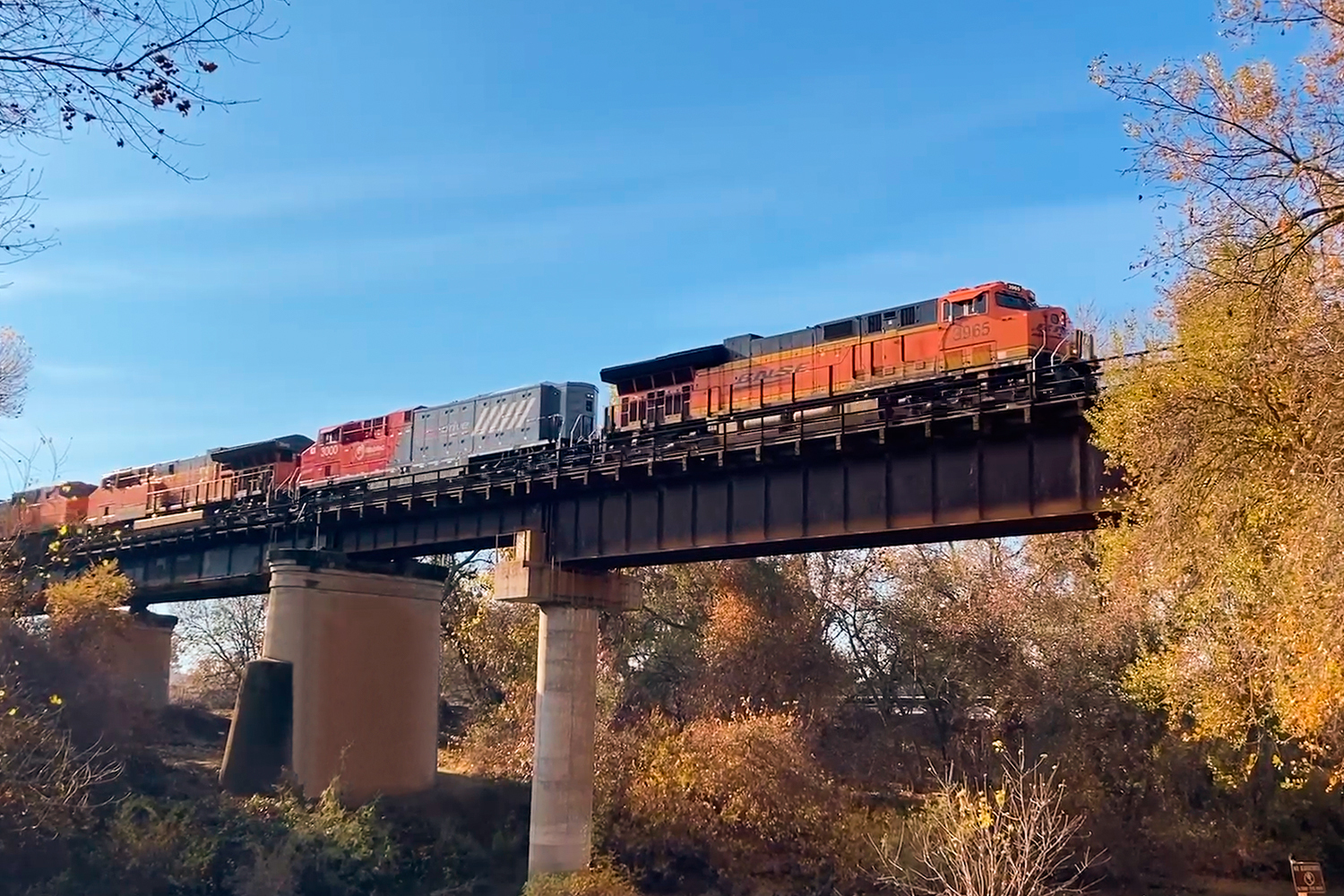
Carnegie Mellon University Joins Partnership
to Decarbonize Rail Freight Transport
by Amanda Waltz
September 15, 2021
A Pittsburgh university has committed to finding clean energy solutions for the rail freight industry.
This month, Carnegie Mellon University and the global transportation company, Wabtec, formally agreed to work on decarbonizing freight rail transport together. According to a press release, the agreement will help both parties fulfill their visions of building “a more sustainable freight transportation network.”
Wabtec also announced a joint effort with Genesee & Wyoming, a major owner of short line and regional freight railroads, to “pursue zero-emission battery and hydrogen freight strategies, as well as increase rail utilization across North America.”
The announcements were made during a gathering at CMU attended by elected officials such as Pennsylvania U.S. Senator Bob Casey.
“Pennsylvania has a long, proud history of railroads and railroad manufacturing. Freight rail is also already a relatively efficient means to move critical supplies around the country,” said Casey. “This effort helps tackle the climate crisis by prioritizing electric and clean energy technology.”
The Pennsylvania Department of Transportation says that the commonwealth boasts 65 operating railroads, the highest in the country, and ranks near the top in total track mileage, more than 5,600 miles.
Casey added that the announcement would also place Pittsburgh “at the center of efforts to address climate change through transportation policy and will also spur significant job growth, reduce greenhouse gas emissions dramatically and allow the U.S. to lead internationally in creating zero-emission solutions for rail.”
Additionally, CMU, Wabtec, and Genesee & Wyoming will work to create the Freight Rail Innovation Institute. The initiative will develop zero-emission locomotives, and technology to increase freight rail utilization, improve safety by 50 percent, and create 250,000 jobs by 2030. Genesee & Wyoming’s Buffalo & Pittsburgh Railroad will pilot technologies developed by the Freight Rail Innovation Institute, including a zero-emissions battery and hydrogen-powered train that will run on over 200 miles of track between Pittsburgh and Buffalo, N.Y.
“The time is right to accelerate the application of emerging technologies to transform the rail industry,” said CMU President Farnam Jahanian, adding that CMU looks forward to bringing the school’s “research capabilities” and “proven track record of success with industry partners to this important effort.”
Rafael Santana, president and CEO of Wabtec, believes the partnership with CMU and Genesee & Wyoming will further strengthen efforts to “decarbonize global rail transportation and will significantly increase freight rail utilization, efficiency, and safety throughout the rail network.
“The transportation sector is at a critical inflection point,” says Santana adding, “With technologies providing increased battery and hydrogen power capacity, we have the potential to eliminate up to 120 million tons of greenhouse gas emissions per year in North America.”
Wabtec has proven its commitment to creating a cleaner rail industry with the debut of FLXdrive, touted as the first heavy-haul battery-electric locomotive. Earlier this year, Wabtec’s FLXdrive was tested during a three-month pilot in California, covering more than 13,000 miles of track. Wabtec claims the FLXdrive reduced the railways' CO2 emissions by approximately 69 tons. It also reportedly reduced overall fuel consumption by more than 11%, saving over 6,200 gallons of diesel fuel.
Wabtec is now in the process of developing the second generation of its FLXdrive locomotive, which is predicted to reduce fuel consumption by up to 30 percent across the train.
Genesee & Wyoming CEO Jack Hellmann says that, while freight railroads already provide the most “environmentally friendly mode of surface transportation,” the industry has a “critical role to play” in the nation’s “decarbonization strategy.”
His claim is backed up by the United States Environmental Protection Agency, which, in 2019, found that rail was one of the lowest greenhouse gas emitters in the U.S. transportation sector. Rail contributed about 2% of the sector’s overall greenhouse gases, compared to the 58% produced by passenger cars and 24% produced by medium- and heavy-duty trucks.
Various reports also cite rail as being far more fuel-efficient, and able to carry more freight, than trucking.
“Through this partnership, we plan to transform the next generation of freight rail transportation by adopting advanced technologies that can eliminate emissions and increase rail utilization without requiring significant new rail infrastructure,” says Hellmann. “The end result will be a cleaner environment, more competitive transportation for our nation’s industrial producers, and a freight rail system that remains the most efficient in the world.”

Leave A Comment